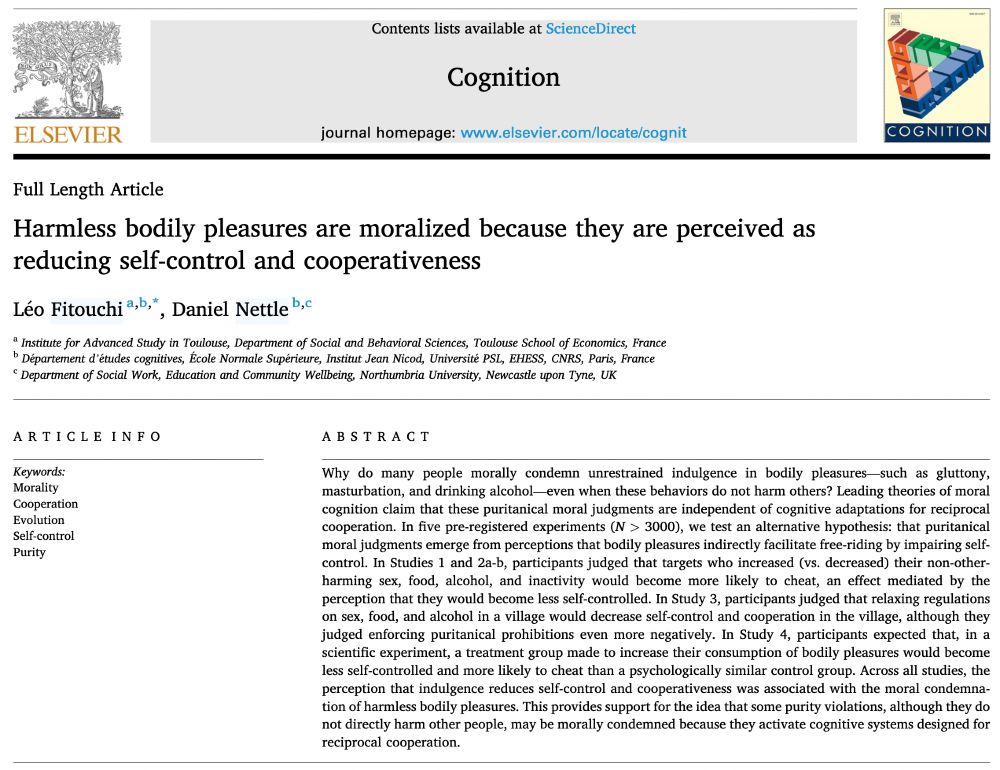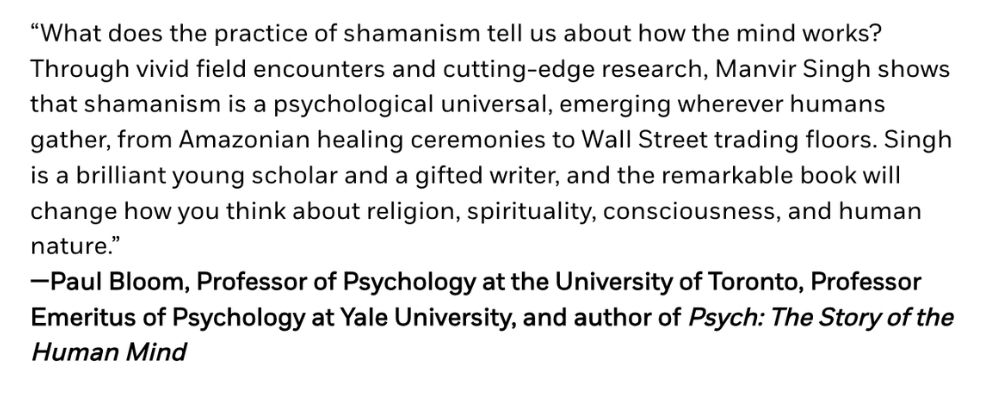Léo Fitouchi
@lfitouchi.bsky.social
950 followers
480 following
56 posts
Cognitive & evolutionary social scientist. Studying morality, religion, punishment, institutions.
Research fellow at @iastoulouse.bsky.social @tse-fr.eu. PhD ENS Paris.
Website: https://sites.google.com/view/leofitouchi/home
Posts
Media
Videos
Starter Packs
Pinned
Reposted by Léo Fitouchi
Le Monde
@lemonde.fr
· Aug 27

« Je voudrais un toit pour mon fils » : le nombre d’enfants à la rue avant la rentrée atteint un nouveau record
Le 7ᵉ baromètre de l’Unicef et de la Fédération des acteurs de la solidarité fait état de 2 159 enfants laissés sans solution d’hébergement au soir du 18 août, après que leur famille a réussi à joindre le 115.
www.lemonde.fr
Reposted by Léo Fitouchi
Reposted by Léo Fitouchi
Reposted by Léo Fitouchi
Reposted by Léo Fitouchi
Reposted by Léo Fitouchi
Reposted by Léo Fitouchi
Catherine Molho
@cmolho.bsky.social
· May 19
Reposted by Léo Fitouchi
Reposted by Léo Fitouchi
Reposted by Léo Fitouchi
Léo Fitouchi
@lfitouchi.bsky.social
· May 12
Reposted by Léo Fitouchi
Reposted by Léo Fitouchi
IASToulouse
@iast.fr
· May 9
Reposted by Léo Fitouchi
Reposted by Léo Fitouchi
Rob Sica
@robsica.bsky.social
· May 9

What makes a good social science theory, and why the evolutionary model of the actor is one - Theory and Society
This paper presents the rules of science in general as the rules of social science and describes what makes a good theory in both science generally and social science specifically. We argue that good ...
link.springer.com
Léo Fitouchi
@lfitouchi.bsky.social
· May 6
Léo Fitouchi
@lfitouchi.bsky.social
· May 6
Léo Fitouchi
@lfitouchi.bsky.social
· May 6















